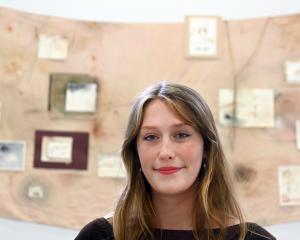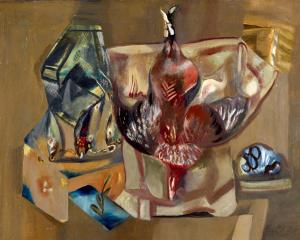Nicholas McGegan is always a happy chappy when someone asks him to conduct Haydn's The Creation.
''I love conducting it. It's one of my favourite pieces and I try to do it every year. I think I've managed to do that for at least the last five years,'' he said in a phone interview from the United States where he was on tour with the Philharmonia Baroque Orchestra at the Tanglewood Festival in Lennox, Massachusetts.
Since 1985 he has been musical director of this group which plays baroque, classical and early romantic music on original instruments.
In New Zealand this week, he is conducting the New Zealand Symphony Orchestra's concerts of Haydn's oratorio in Auckland, Wellington and, next week, Dunedin with New Zealand soprano Madeleine Pierard, bass-baritone Jonathan Lemalu and British tenor Andrew Staples and a different choir in each city.
''I love Haydn's music. I also think he must have been one of the nicest people on the planet. He's also quite witty and I like music that is good humoured and he liked his jokes and so do I. I feel personally I would have liked him a lot. I find his music very congenial and that means I enjoy conducting it,'' McGuigan said.
He had conducted The Creation with big orchestras like the NZSO and with smaller ones on period instruments, and said that essentially there was not a great deal of difference between the two.
''What is different are things like the scale of the performance. How many people you have in the chorus, for example, and sometimes if I'm doing it in a period place I'd be doing it in a much smaller concert hall than I would be with a modern symphony orchestra,'' he said.
Haydn conducted the piece himself about 40 times before his death in 1809 and left notes and changes in his scores which have only been published in the last couple of decades.
McGegan will use these in the NZSO concerts
''There are some extra ornaments for the singers. He revised the orchestration here and there and this is all stuff that is different from when he wrote it.
''There's a bit more clarinet so we'll be incorporating more of that, the double bassoon, the great big contrabassoon, has a lot more to play, and the trombones have a little bit more. Adam and Eve will sing in a more elaborate way than they probably do on many recordings,'' he said.
The Creation is an oratorio that retells the story of the creation of the world inspired by the book of Genesis in the Bible and Milton's Paradise Lost.
It was written in both German and English so it would be performed in English.
It was important to do it in the language the audience could understand, he said.
''I feel the music has everything you could want. It has grandeur, it has humour, it has very few sad moments ... It's mostly happy.
''It's got amusing bits. At one point it's pretty obvious that a cow is passing gas and the trombones and bassoons play their lowest note very loudly. Clearly the audience would have laughed; it's very funny. Adam and Eve are clearly very jolly.''
''He has all the technical skills to write really intricate, complicated counterpoint and with that he's a master, the same as Mozart, Bach and Handel were. So in an hour and a-half or however long it lasts, you've really got everything, from the grandest down to imitating worms and insects.''
The story ends before the fall, although there's a recitative at the end that foreshadows this, he explains''We leave them still naked but happy, at least in the imagination! It does seem to say the tree of knowledge isn't far away but we'll stop. We'll leave out all the problem stuff.''
Using different choirs in each of the three concerts was not really a problem, he said.
He sent them all a recording and a copy of the score that was carefully marked up and included metronome marks.
''They've all got the same info. It should be possible effectively to clone each chorus. Each chorus will bring its own personality to the performance. It will be like triplet sisters; they'll all have their own personality but they'll look and sound very alike,'' he said.
He had conducted The Creation many times, in German as well as English, with period and non-period instruments, with American and with European soloists and now with New Zealand soloists, but conducting the same work multiple times was no problem.
He had conducted Handel's Messiah about 150 times, he said.
''The singers are always different, the orchestra's different. Maybe you have some new ideas. One hopes they are better ideas but if they are not you can always get rid of them.
''Though I'm conducting it. I'm the one person who doesn't make a noise so the soloists bring something to the table, the chorus will bring something to the table, the building will bring something to it. It could be a very large chorus in a very small building. If it's a very echoey building I would take the tempo slower. It's never something, as it were, I can stick in the microwave, it's always cooked to order, so it's always new and that keeps it fresh,'' he said.
Nicholas McGegan
Born and educated in the UK, Nicholas McGegan (64) became involved in the early music and authentic instrument movement that was emerging when he was a student in the late 1960s and early 1970s. He now specialises in music from about 1600 to 1850 and contemporary music by living composers.
He's happy to leave later 19th and early 20th-century music to others who do it better than he, but he ''wears his 18th-century wig often'', he says.
With 17th-century ensembles which often don't need a conductor, he enjoys directing from the harpsichord as was done at the time.
''I get the opportunity several times a year to play chamber music and that's terrific. It's lovely not to be in charge but just to sit at the harpsichord and accompany singers or violinists,'' he said''I was never a very good keyboard player of the sort who play on their own. I would get very lonely. I'm happy to be a social animal and work with orchestras and play chamber music.''
This is the US-based conductor's first visit to the South Island, although he toured the North Island with the NZSO last year.
After The Creation tour he plans to rest as he has a week off before his next gig in Adelaide.
He is going to stay near Kaikoura, read, relax and enjoy New Zealand wines and landscape, he says.













